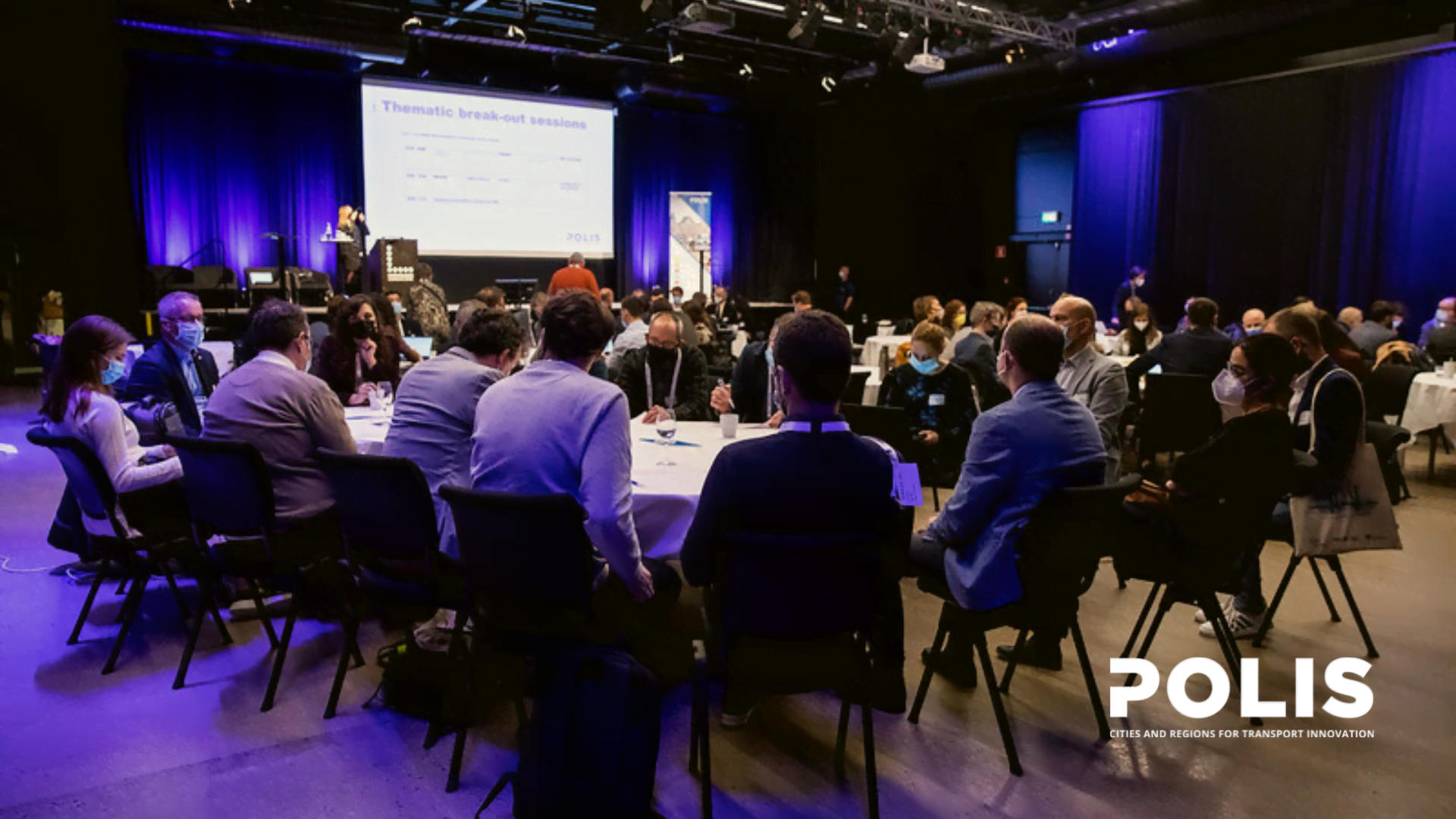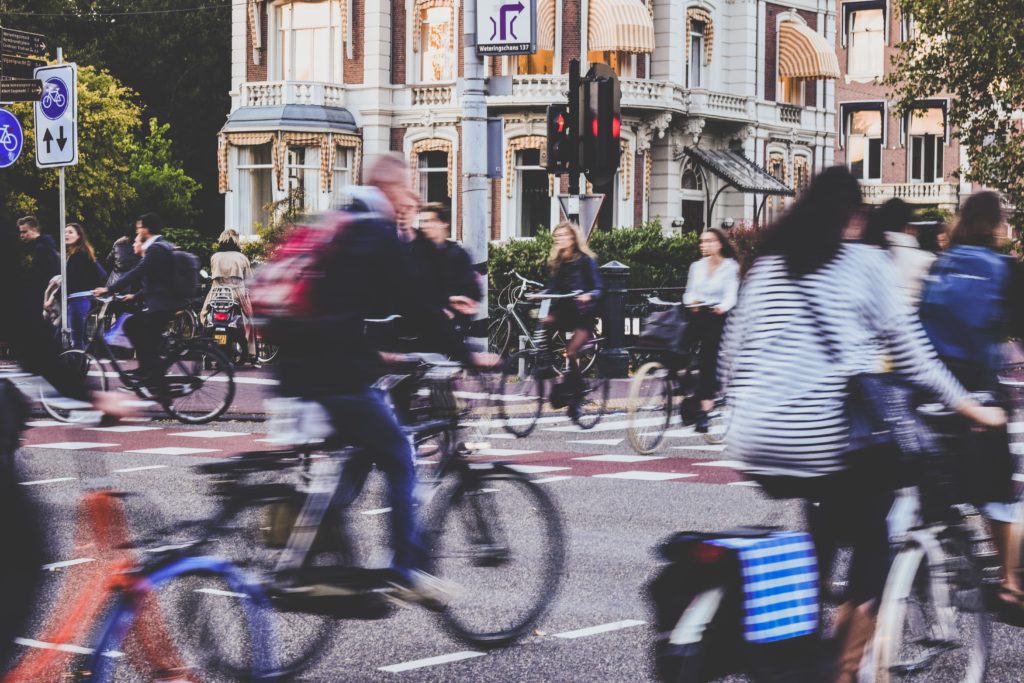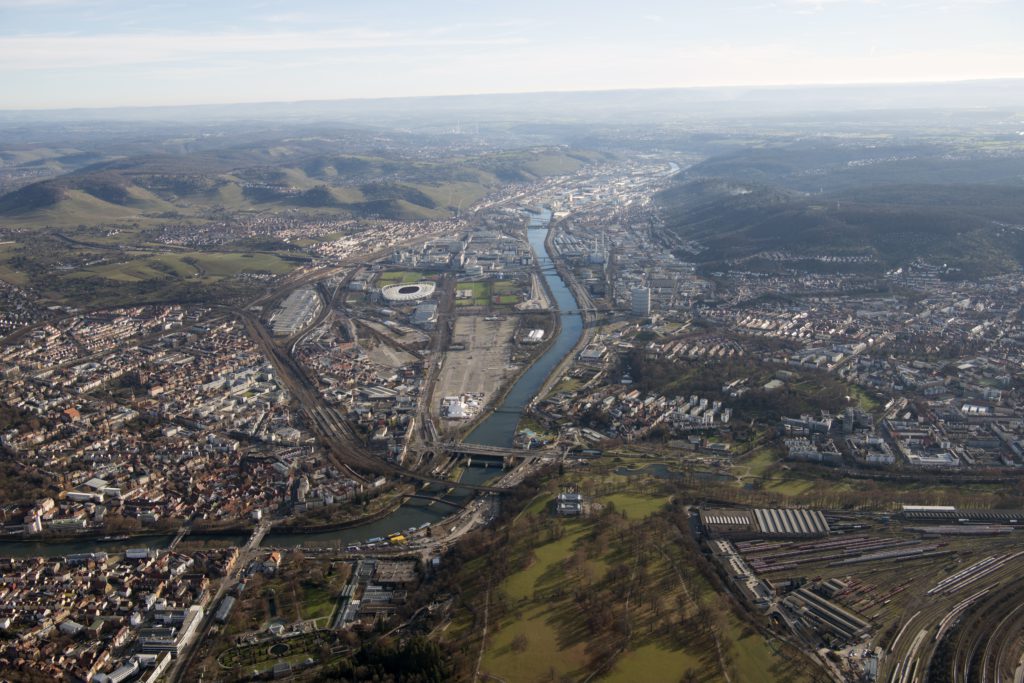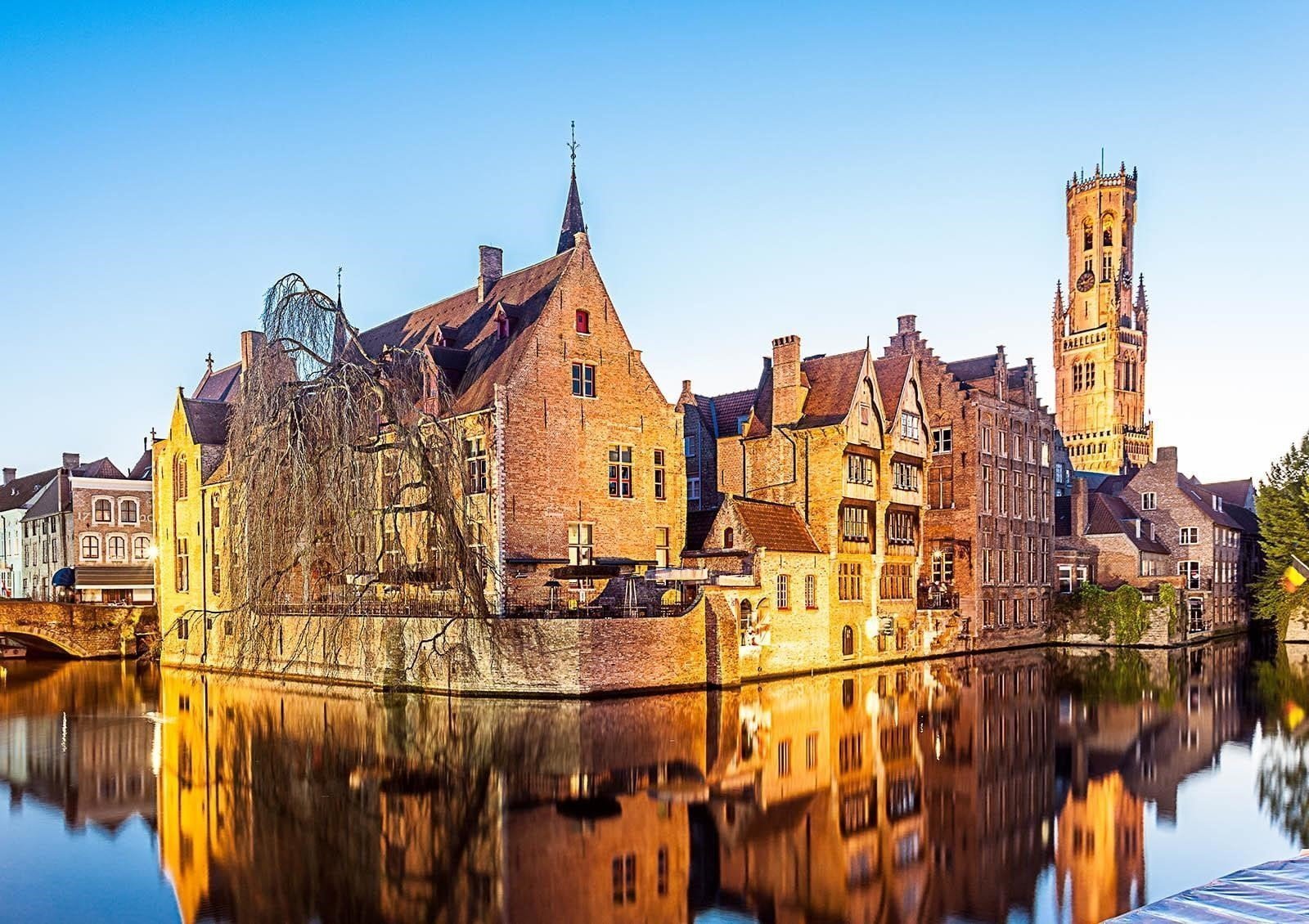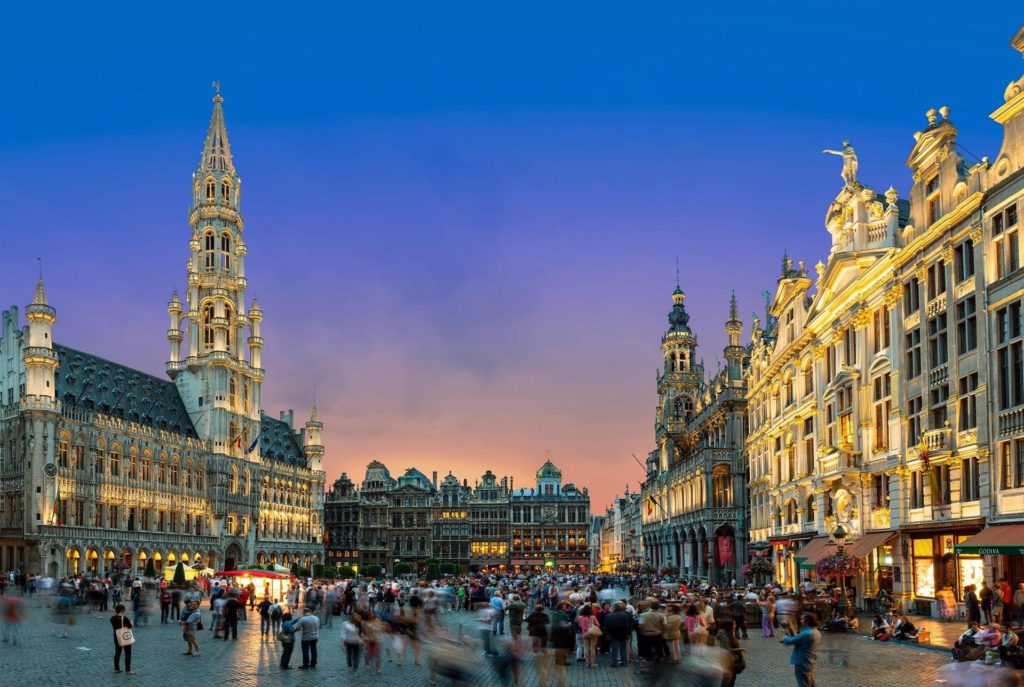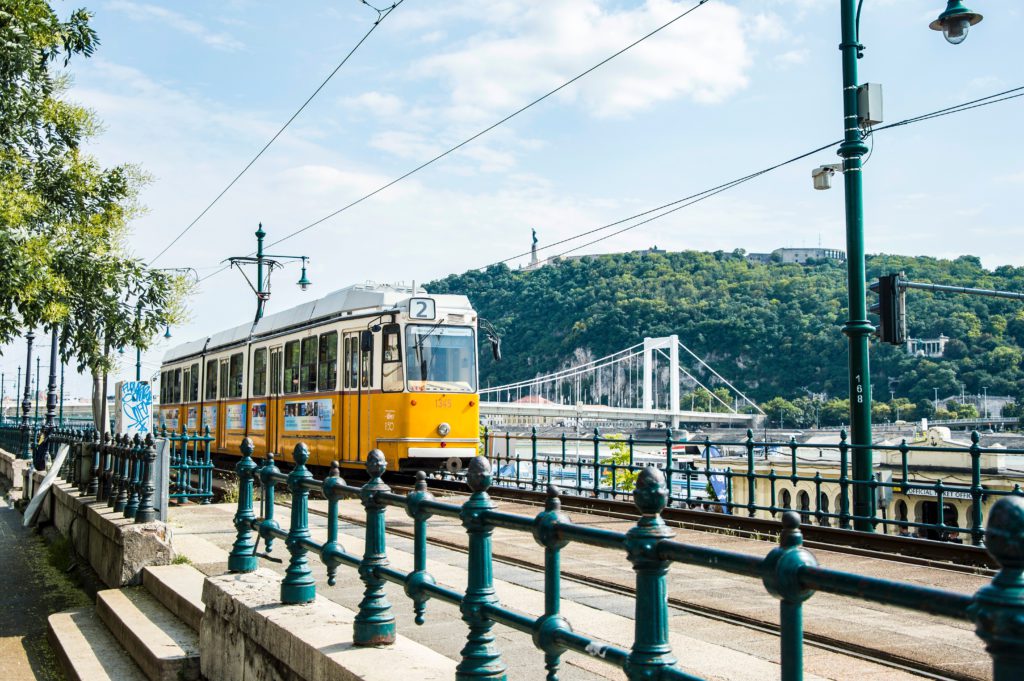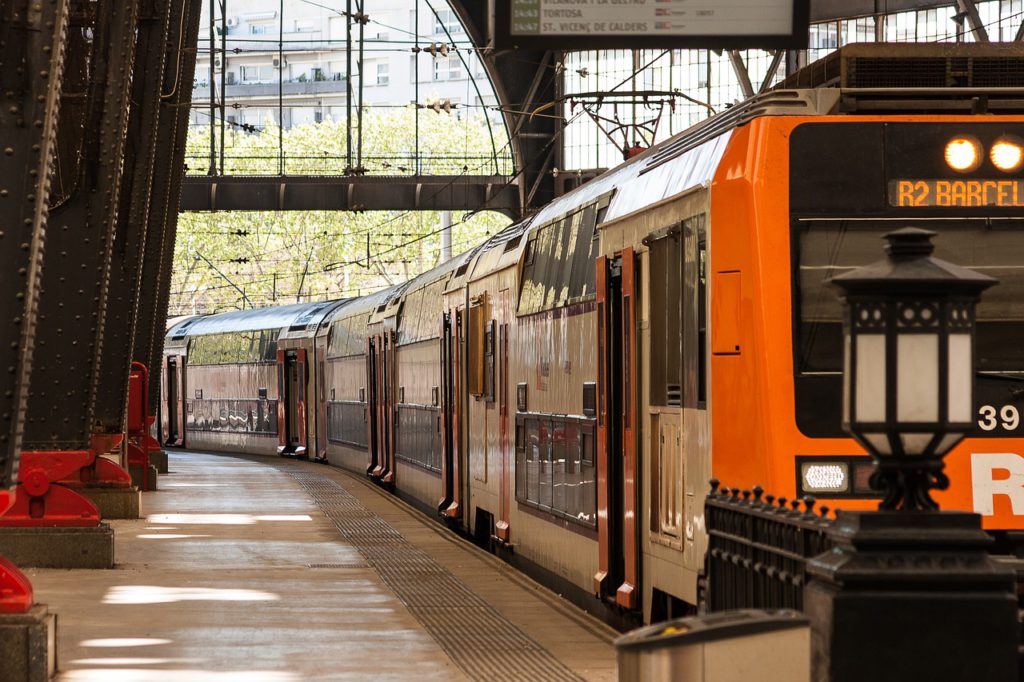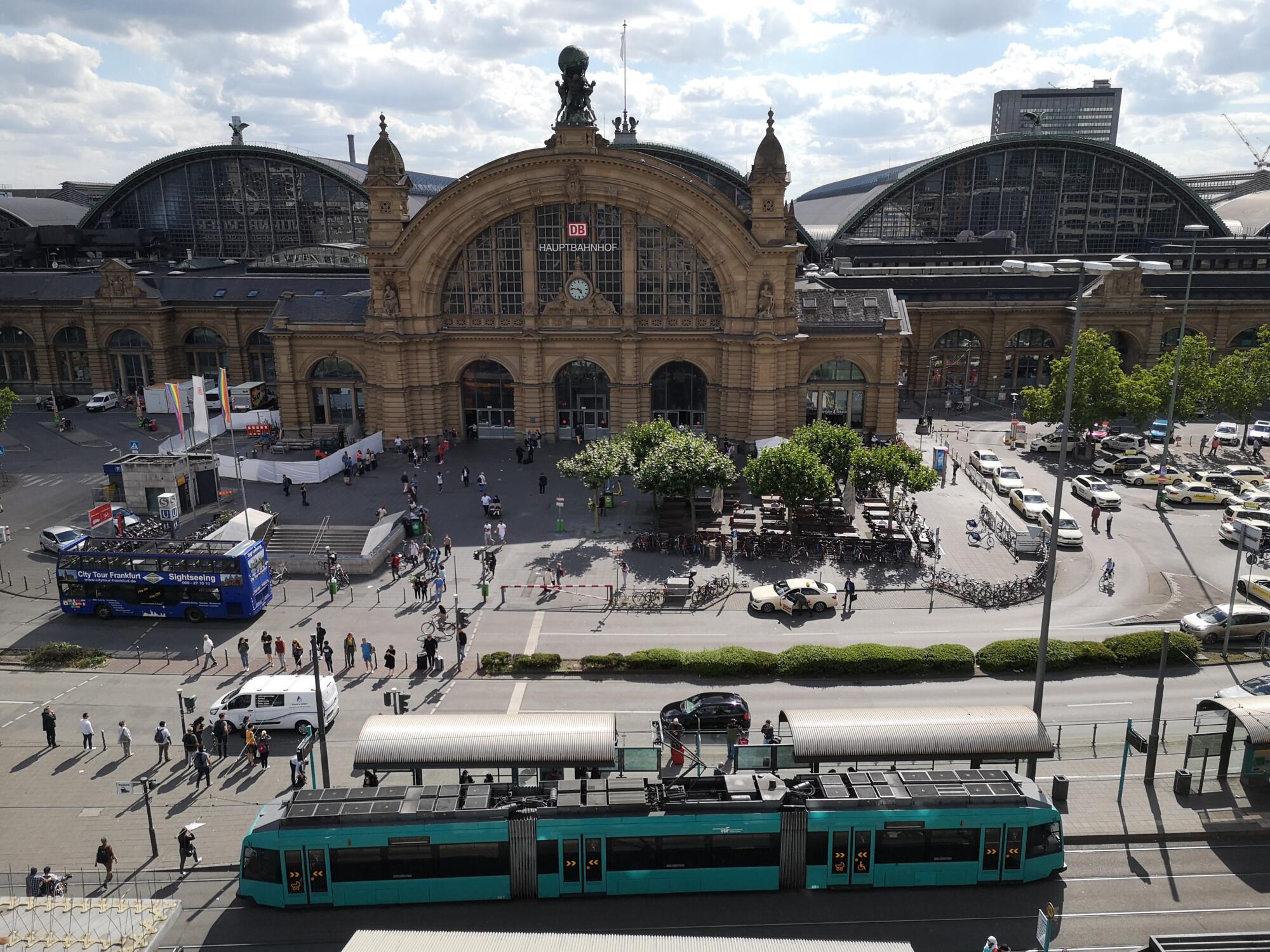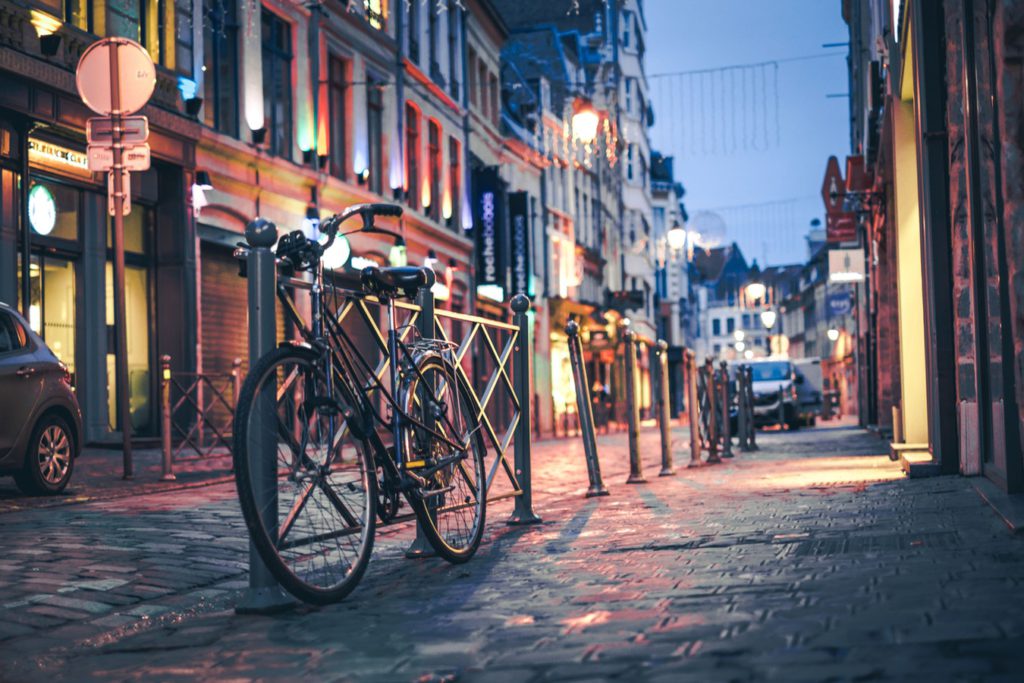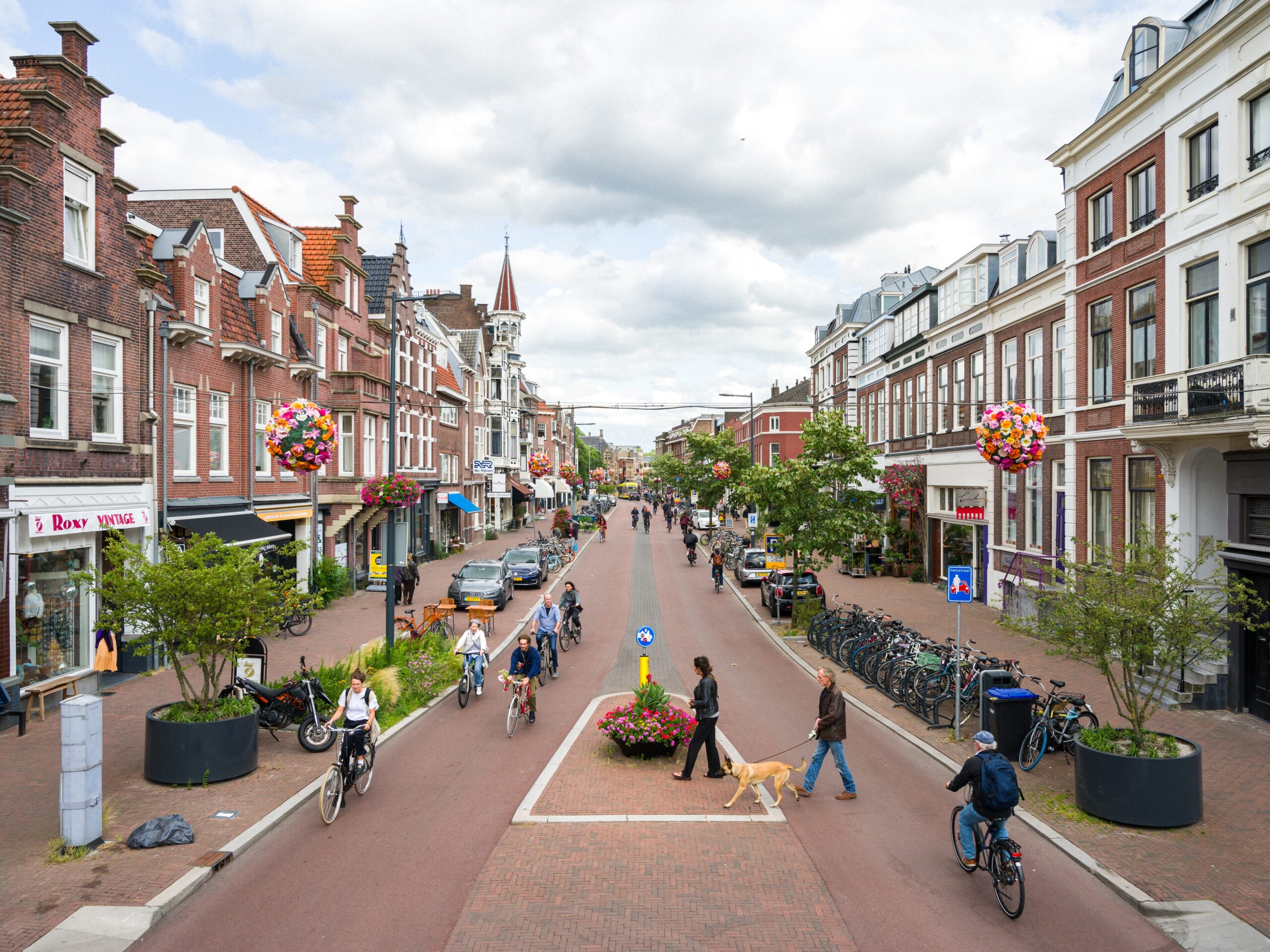An autumn of action! POLIS' Working Group meetings
As the winter - and of course the Annual POLIS Conference - draws closer it is time again to reflect on our recent working group meetings.
It has been a busy few months of in-person and online meetings with POLIS members meeting to discuss everything from bicycle parking to freight flows and digitisation to regional commuter management.
Our Working Groups offer an excellent platform for peer-to-peer exchange (and rigorous debate) with other European cities and regions on a wide range of urban-mobility-related topics including freight, safety, clean vehicles & air quality, health & active travel, governance, social & economic access, and traffic efficiency.
Here is a quick overview of what autumn 2022 brought…
Traffic Efficiency Working Group: data, digitisation and EU policy
The Traffic Efficiency group met in Paris for a half-day meeting as part of the NAPCORE Days, to continue discussions on the evolving EU policy framework that is creating many obligations for the digitisation of spatial data, mobility services and traffic regulations and opening up opportunities for public authorities to harness data and digitisation to support transport management and enforcement tasks.
The final session was organised around brainstorming on two new provisions of the revised real-time traffic information delegated regulation, adopted earlier this year.
This meeting built on the working group’s in-depth analysis of data and digitalisation, automation, C-ITS, MaaS and European ITS/data policy, supporting POLIS members in navigating the way forward.
Air Quality & Clean Vehicles Working Group: smart solutions for electromobility
This working group examines the available tools and innovative strategies for future-proof concepts like smart, fast and bi-directional charging.
The working group met in Brussels to hear about new and innovative projects as well as updates on current European policy and upcoming action. Delegates heard an update on the EU policy framework on e-mobility, examining the ambitious targets set under the “Fit for 55” package and REPowerEU initiatives.
This built on the working group’s exploration of EU directives and strategies including the Alternative Fuels Infrastructure Directive (AFID), Clean Vehicle Directive (CVD) and Clean Energy for all packages among others.
The Municipality of Arnhem also presented the CleanMobilEnergy Project (CME) with updates from the SCALE project too.
Members can read the full report HERE.
Access Webinar: Cutting cars from cities, from research to action!
The Access Working Group convened for a webinar exploring cutting-edge research on reducing cars from cities, examining how cities and regions can apply these on the ground.
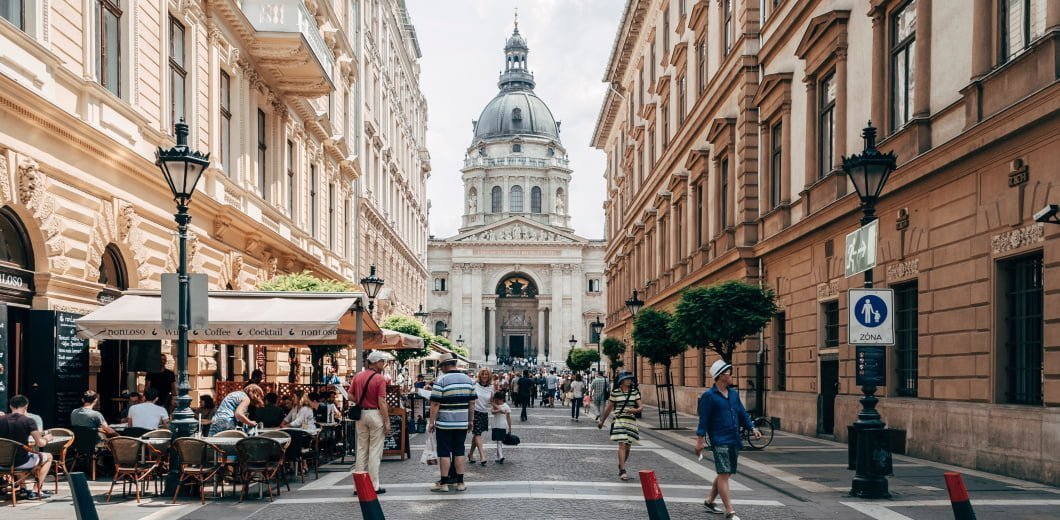
credit: ljubomir zarkovic
The race is on to decarbonise urban mobility. Cities and regions across Europe- and beyond- have set ambitious greenhouse gas emission reduction targets, targets which require radical, transformative action. Reducing the volume of private cars is essential for achieving these. Indeed across Europe, from Brussels to Budapest, Paris to Bielefeld, cities are taking increasingly radical action to cut car use in urban spaces.
While this is not easy, regulatory and practical solutions are at hand, and there is growing evidence-based research on car reduction, drawing from good practices and pilots.
To explore how cities and regions can translate ambition into effective, durable action, POLIS’ Access Working Group convened researchers and city representatives to share effective measures and instruments.
Members can read the full report HERE.
Urban Freight working group: POLIS-ALICE Webinar series returns
To reduce the negative impacts of urban construction sites, efforts into better transport and traffic planning around a construction site to manage freight flows are needed. City authorities can proactively manage the process during the planning phase of an urban construction project.
A collaborative approach to consolidating construction materials presents potential benefits to construction companies and public authorities by reducing traffic flow and cost.
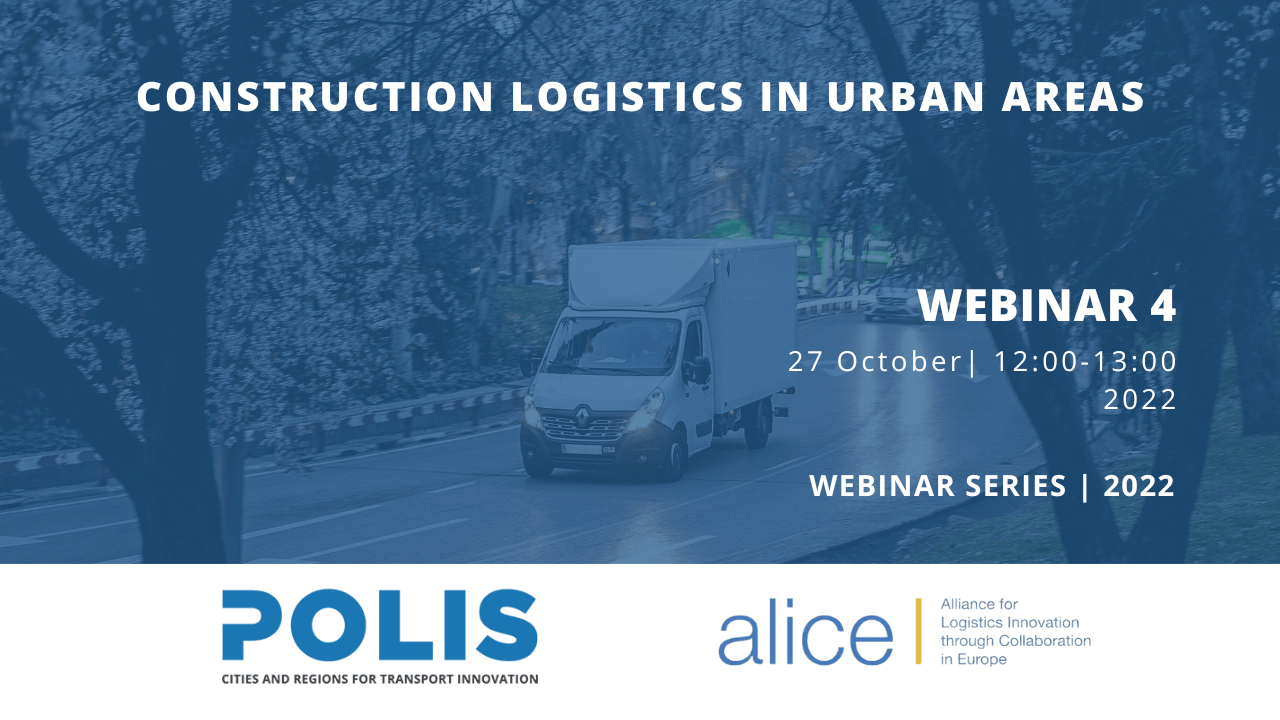 The POLIS-ALICE webinar series returned to share best practices and raise awareness among policymakers and logistics practitioners on how to reduce the negative impacts of construction logistics.
The POLIS-ALICE webinar series returned to share best practices and raise awareness among policymakers and logistics practitioners on how to reduce the negative impacts of construction logistics.
POLIS has a long-standing partnership with the European Technology Platform ALICE, working together to forge synergies between projects, initiatives, cities-regions, and companies to accelerate innovation.
These webinar series come hot on the heels of the Joint Guide for advancing towards zero-emission urban logistics by 2030, published in December 2021.
Regions working group: Commuter traffic planning and demand management
Commuter travel patterns have changed significantly over the last few years. Prompted by the COVID-19 pandemic and driven by accelerating communication technologies, work patterns have become more flexible. Behaviours have changed and - as recent research reveals - car traffic has not returned to pre-pandemic levels.
Nonetheless, private car travel persists, and the number of commuters entering cities in combustion vehicles does not put cities and regions on track for climate neutrality goals. Significant change is still needed - fast!

The Regions Working Group met virtually to explore the way forward. From Barcelona’s LEZ to the Brussels Region’s SmartMove project to Vlaams Brabant’s regional spatial policy, with a little help from the Dynaxibility4CE project, we examined how regions are - and can further - guide sustainable commuter flows.
Members can read the full report HERE
Active Travel and Parking joint meeting: When pedal power meets parking
It is often bike lanes which dominate discussions on cycling infrastructure, yet bike parking is an equally critical element in encouraging and supporting active travel.
We are seeing a proliferation of new and innovative bike parking facilities across Europe. From Utrecht’s 12,500 places Stationsstalling (Station bicycle parking garage) to Brussels Capital Region’s cargo bike strategy; cities and regions are investing in efficient, accessible and secure parking to support sustainable leisure and commuter travel.
So how do we build on this momentum, and what is next?
On 14 November, the Active Travel and Parking working groups joined to examine the future of bike parking and the role of data, technologies and infrastructure- with a comprehensive and honest debate about the future.
The Brussels Bubble Band meets again
After two years of online discussion, the representatives of POLIS members in Brussels met in person for the Brussels Bubble Band. Hot policy developments and fresh lobbying insights were served to the tune of Sustainable Urban Mobility needs.
The meeting was a chance for member representatives based in Brussels to find out more about key topics in EU urban mobility policy, and to discuss ways to cooperate and advance the needs and goals of local and regional authorities on those topics.
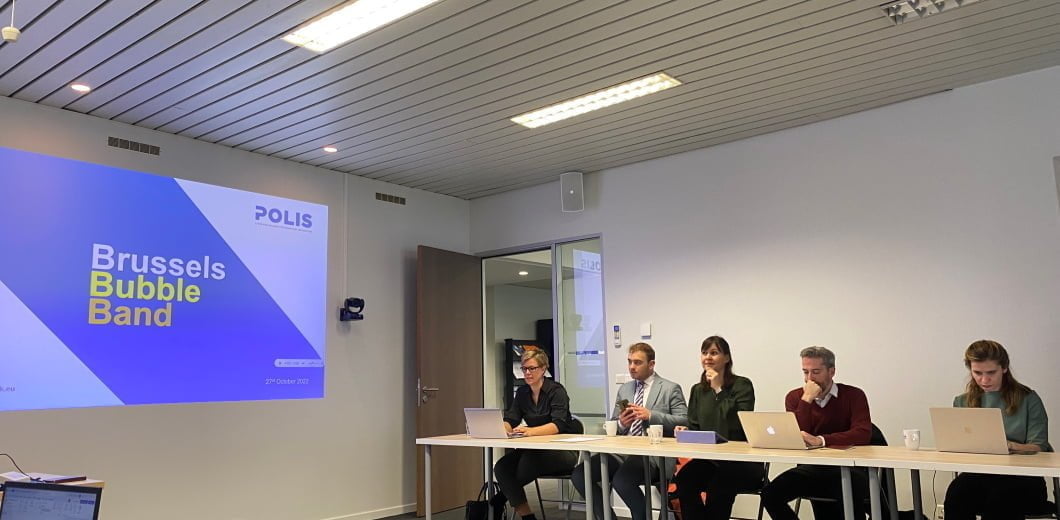
The Brussels Bubble Band meet at the POLIS office, in Brussels
The event drew representatives from Noord-Brabant Province, Cities Northern Netherlands, Brussels Capital Region, Roma Tre University, the G-4 EU Office (Amsterdam, the Hague, Rotterdam and Utrecht), Noord-Holland Province, Cities Northern Netherlands, City of Eindhoven and the EU Office of FrankfurtRheinMain Metropolitan Region.
The group feasted on a rich buffet of policy developments, having TEN-T Urban Nodes for starters, Urban Freight issues for primo piatto, Air Quality and Clean Vehicles for secondo piatto, and for dessert, Traffic Efficiency and ITS.
Members can read the full report HERE.
Want to find out more about our working groups?
POLIS members meet regularly in working groups to exchange best practices and share knowledge on sustainable urban mobility.
Working Group meetings are open to POLIS members only. However, external experts may be invited to attend as appropriate.To find out more contact iduxfield@polisnetwork.eu
